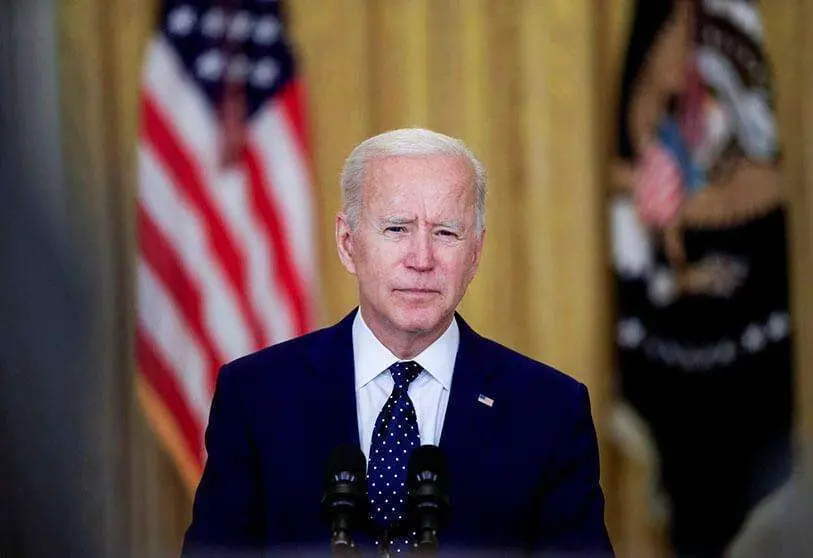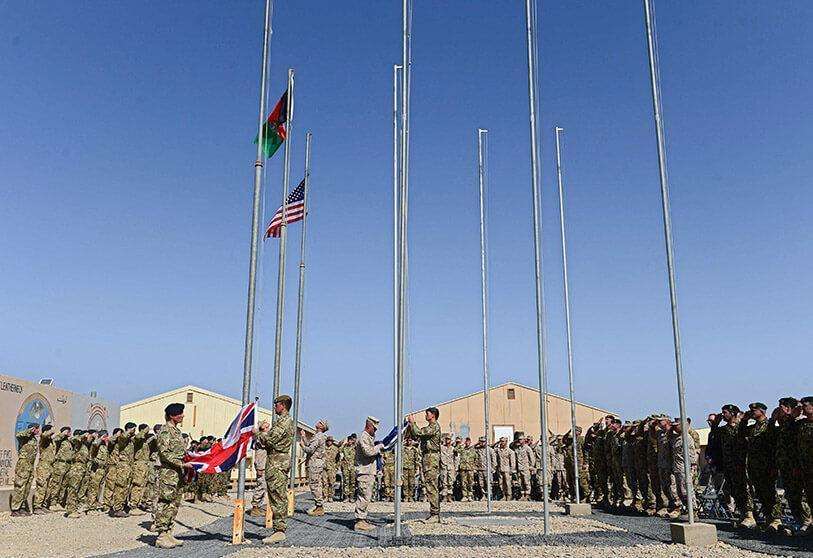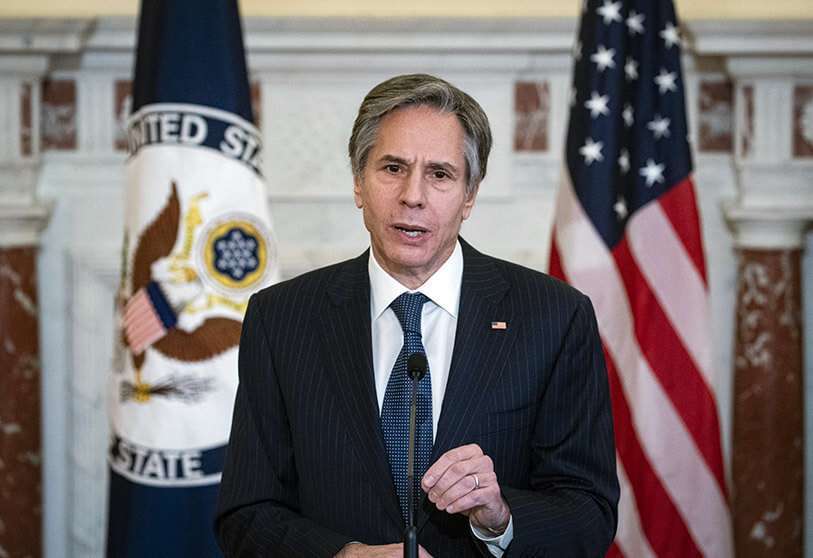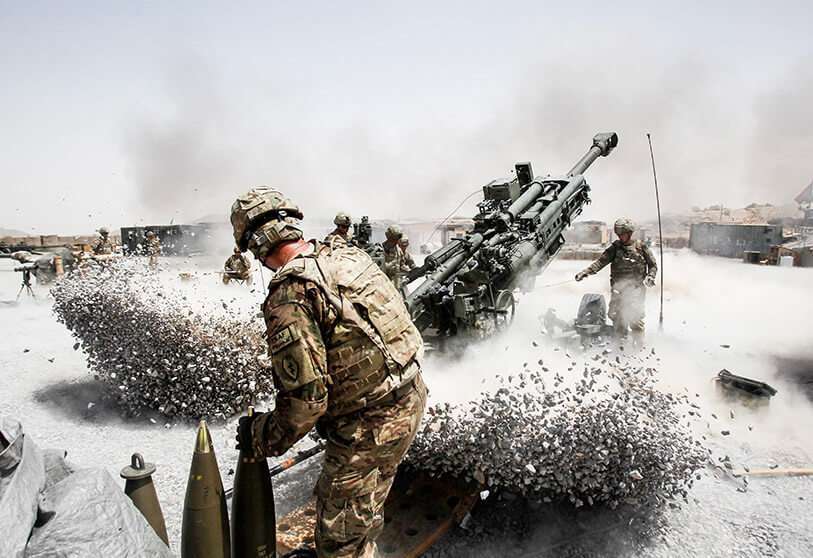The fall of Kabul and 9/11

This Saturday, 11 September, the United States commemorated and remembered the nearly three thousand victims of the attacks perpetrated by Al Qaeda Islamic terrorists twenty years ago. A few weeks ago, President Joe Biden said in a speech on the occasion of the US withdrawal from Afghanistan, the takeover of the Taliban and the fall of Kabul: "Our mission in Afghanistan was never about nation-building. It was never intended to create a unified, centralised democracy. Analysts have questioned the US president's words, because how does one invade a country, to hunt down terrorists, without feeling any subsequent responsibility for the fate of the citizens in the invaded country, observed academic Mary Kaldor. "The fall of the capital is not only a devastating tragedy for Afghans, but the whole world has seen it as a victory for Islamic extremism, the very thing Biden said the US wanted to destroy. Now, the Taliban will be able to offer sanctuary to both Al Qaeda and the Islamic State," reconstructed the professor of Global Governance at the London School of Economics.
Afghanistan is not a success story. To claim otherwise seems to defy the evidence of facts and images. Corruption within the political system, under both President Hamid Karzai and his successor, Ashraf Ghani, helps to explain some of the support for the Taliban, but "it is entirely possible that the Taliban, linked to the heroin drug trade, are more corrupt than the Ghani government," argued writer David Rieff, noting that there is "some popular support" for the Taliban. Otherwise, "they would not have won the war. Or they would not have survived until the US troops left. In addition, jihadism (radical Islamism) has support in Pakistan and the Gulf states. Nor should we lose sight of the presence of the Taliban operating from Qatar and other countries in the region. "However, I am sure there are millions of Afghans for whom the victory of the Taliban is an absolute tragedy. It is a very fractured country, there is no Afghan consensus in Afghanistan," explained the American writer, political analyst and Afghanistan expert, author of A Bed for a Night where he analysed, among other things, the war in Afghanistan.

To what extent will the images that went around the world negatively affect the image of the United States and the realistic perspective outlined by then-candidate Joe Biden, who bet on recovering the country's international positioning and credibility after the ups and downs and the detriment to foreign policy caused by the Trump administration? Biden considered that the United States should opt for mechanisms other than military intervention to promote human rights in the world and reserve military action for threats to its national security and/or that of its allies, a position he ratified in different scenarios, for example, during the last NATO Summit. "But there is a difference between inaction and abandonment, just as there is a difference between realism and fatalism", interpreted David Hamburger, criticising that the US government has opted for "complacent self-exculpation masked under the rhetoric of realism", as analysed in Persuasion. Hamburger noted that the Biden administration refused to "accept moral responsibility for the predictable consequences of its own actions and the implicit denial of its own capability". He picked up on Eliot Cohen's analysis to emphasise that: "To suggest, as this administration has done, that the catastrophe looming over Afghanistan is not our responsibility is morally and factually false. We have made a brutal decision, an understandable decision, but it is by no means a morally neutral decision". From a US national interest perspective it may be that ending the presence in Afghanistan was the right or at least the least bad decision. However, the lack of temperance in the implementation of this decision cannot be excused, let alone condoned by the government's position that seemed to insist that everything went according to plan. In any case, it was clear that the US government wanted to get out of Afghanistan before 11 September.
At the time, the intellectual David Rieff considered the necessity or appropriateness of the US mission that sought to capture and/or kill Al Qaeda's leaders, Bin Laden and his associate Mullah Omar (both of whom are dead), as well as to weaken that terrorist structure, but he did not support the democratisation project and the consequent occupation of Afghanistan. In fact, the writer spoke out ten years ago in favour of US withdrawal from Afghanistan. The author is sceptical and even pessimistic or highly realistic about what he perceives as "utopian" discourses, for example, about making the Taliban accountable to the international system for their crimes. He doubts the likelihood of (Western) success in promoting and establishing liberal democracy in countries that do not have such a tradition and must undertake the democratisation project on their own. In other words, for the writer, the idea that the United States is the guardian of freedom "is absolute nonsense".

For Kaldor the issue is different: "At first, I opposed the invasion of Afghanistan because terrorism is a heinous crime but not a war. I thought it was necessary to use police and intelligence techniques rather than military methods to fight it. I then argued in favour of a change of strategy from fighting terrorism to ensuring people's security and, therefore, not withdrawing troops in order to protect the human rights of all Afghans. My view was that, after invading the country, the West had a responsibility towards Afghan citizens. And I still think so. I think it is now time to take people's security very seriously, not only for the sake of the Afghans, who are the top priority, but as a way of dealing with global crises including terrorism.
For various analysts, journalists and opinion columnists in Europe and the Americas, the fact that the United States got involved in Afghanistan and left in this way had a trail of failure and a taste of defeat that generated a sense of unfulfilled promises and broken words or the perception of the hollowing out of concepts and values to which many citizens in different parts of the world genuinely aspire. Yet President Joe Biden did not regret his decision, and US Secretary of State Antony Blinken appeared before the media suggesting, in the face of the US exit from Afghanistan, that the objectives were achieved and that the withdrawal was orderly. The words contrasted with the shocking images of the suffering and despair of thousands of people who remained behind.

Biden also indicated that (in the interest of avoiding hostilities) the deal struck by the Trump administration with the Taliban implied that the timeline for US withdrawal from Afghanistan had to occur effectively and could not be altered. David Rieff defended President Biden's position and speech: "there was no justification for US troops to stay". Rieff agreed that "we had to withdraw. And there was no other way to do it. I fully support Biden. For the former war correspondent, the departure of US troops will not have a major impact on the Biden administration; the impact will be less than is assumed. The author noted that Biden's image might be affected in select circles and among certain elites, but that it would not have a major impact at the societal level. US citizens are not focused on the domestic situation in Afghanistan and their concerns are elsewhere. The writer added that Biden would also not be affected by Afghanistan before Congress and stressed that "in a symbolic sense the decision to end this war, the occupation, the democratisation project, whatever, is important for Washington's foreign policy as well. But in terms of the government of the country, no. I don't think it will have any effect. I don't think it will have any effect".
Following the perspective of various historians, including Rieff, it is worth noting that history does not repeat itself: Afghanistan is not another Vietnam for the United States, although some of Biden's critics have insisted on drawing parallels. It is likely that in a few months the Afghanistan issue will have been displaced if it has not disappeared from the US conversation. "It is true that the manner of the military's exit has been a disgrace," but "a large majority of the population was already against continuing this war," the American historian and intellectual pointed out.

Hamburger was highly critical of what the Biden administration called an "orderly and deliberate" withdrawal that in reality "was chaotic even before the Taliban swept into Kabul. Most nauseatingly, we will simply watch what happens to tens of thousands of Afghans who fought hand-to-hand with NATO soldiers, and their families, whom the president promised to protect, and who now see their escape routes narrow to nothing. However impossible the expectations of nation-building in Afghanistan may seem, none of this is a success. Trying to present it as such doubles the offence; it is a wilful blindness to moral failure," he said. The London School of Economics academic asked: "How can Blinken not know that this process has been woefully inadequate and that much of the $83 billion for security forces has gone into the pockets of America's old allies? Does he not realise that the key to security is legitimacy, not the number of soldiers on the ground? How were Afghans to feel safe when they suffered night raids and drone attacks from the West, continued predatory and criminal acts by members of their own government and attacks by the Taliban? How could soldiers be expected to remain loyal to warlords and corrupt officials?" Kaldor noted that "the US and NATO have more troops in Afghanistan today than they did six months ago". He explained: "Attempts by the UN and NATO to stabilise Afghanistan and improve the security of its people were repeatedly unsuccessful. The reason was that the US allies in the fight against terrorism were so-called warlords, many of the warlords - or their sons - whom the CIA had recruited in the 1980s to fight the USSR invasion. The continued presence of these criminal and predatory warlords is the factor that explains the structural corruption and lack of legitimacy of the Afghan government. Some of those who allied with the Americans in the fight against terrorism had US citizenship but continued to act with impunity. Civil society groups were unrelenting in their vociferous demands for justice and an end to corruption. But they were not heeded.

Congressional Democrats praised the president's position, advocating for including Afghan women and girls in discussions and planning for the "future of Afghanistan". Biden reaffirmed the US foreign policy commitment to human rights, including those of women and girls. The Taliban spokesman insisted that they would not seek revenge, but would grant amnesty to those Afghan citizens who served in the security forces, worked for President Ashraf Ghani's government or for foreign delegations. "We have pardoned everyone for the sake of stability and peace in Afghanistan," he said. However, in parallel, they have opened fire on demonstrators, persecuted, repressed and killed opponents, activists, citizens, critics and also harassed their families.
International analyst Andrés Oppenheimer noted that the Taliban takeover of Afghanistan will be remembered as a US defeat and a fiasco by President Biden. However, the decisions implemented by Biden were taken by his predecessor, President Donald Trump. Oppenheimer also allowed himself to doubt the alleged impact on the popularity and credibility of the US government. The events in Afghanistan will not have a devastating impact on Biden or the United States: "All empires end at some point, and the United States will be no exception. But I doubt that the time is now, and I doubt that Afghanistan is the reason. The Democrats may lose some votes in the 2024 presidential election, and America's image may be weakened somewhat, but "I am sceptical that this is an insurmountable defeat, either for Biden or for the United States". The reasons: foreign policy is important, but it has not been central to the image of US presidents. In addition, the economy is booming (7% growth is forecast for 2021, as well as falling unemployment and record stock market gains), the government will be more creditworthy, the Biden administration has done a remarkable job of managing the health crisis, remarkable compared to his predecessor's, and it has the world's most effective vaccines against covid 19. The US remains the world leader in innovation and patents. "As for a possible collapse of US influence in the world, I am equally sceptical. The US remains the world's largest military and economic power, and controls the world's most valuable currency," the analyst concluded.

Clara Riveros, Colombia, 1984. Political scientist, political analyst and author. She writes, analyses and gives opinions. She has lived between Latin America and North Africa. Her books deal with aspects related to populism, totalitarianism, revolutions, dictatorships, confessional states, authoritarian regimes and, of course, the question of freedoms and mentalities in these regions on both sides of the Atlantic.
